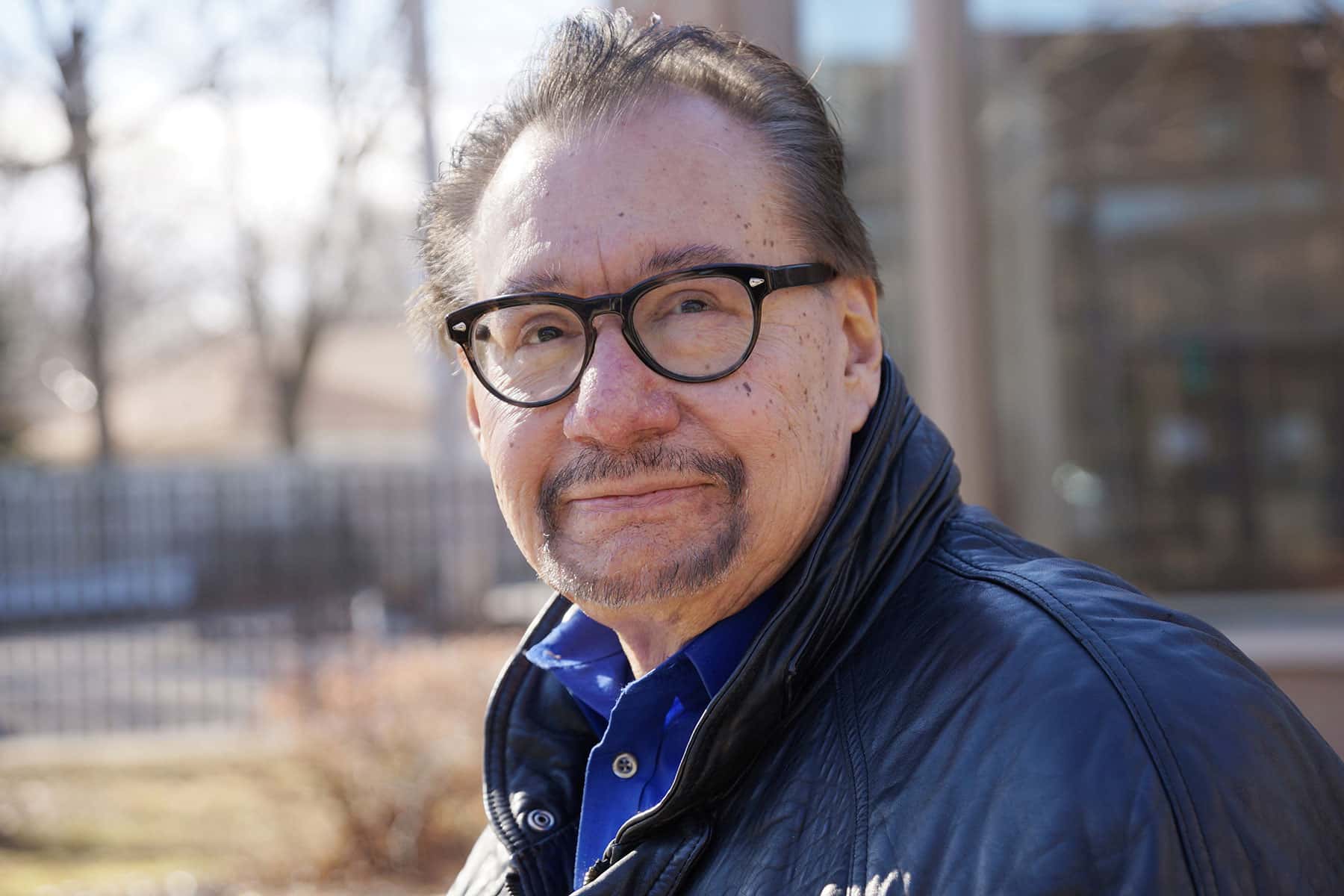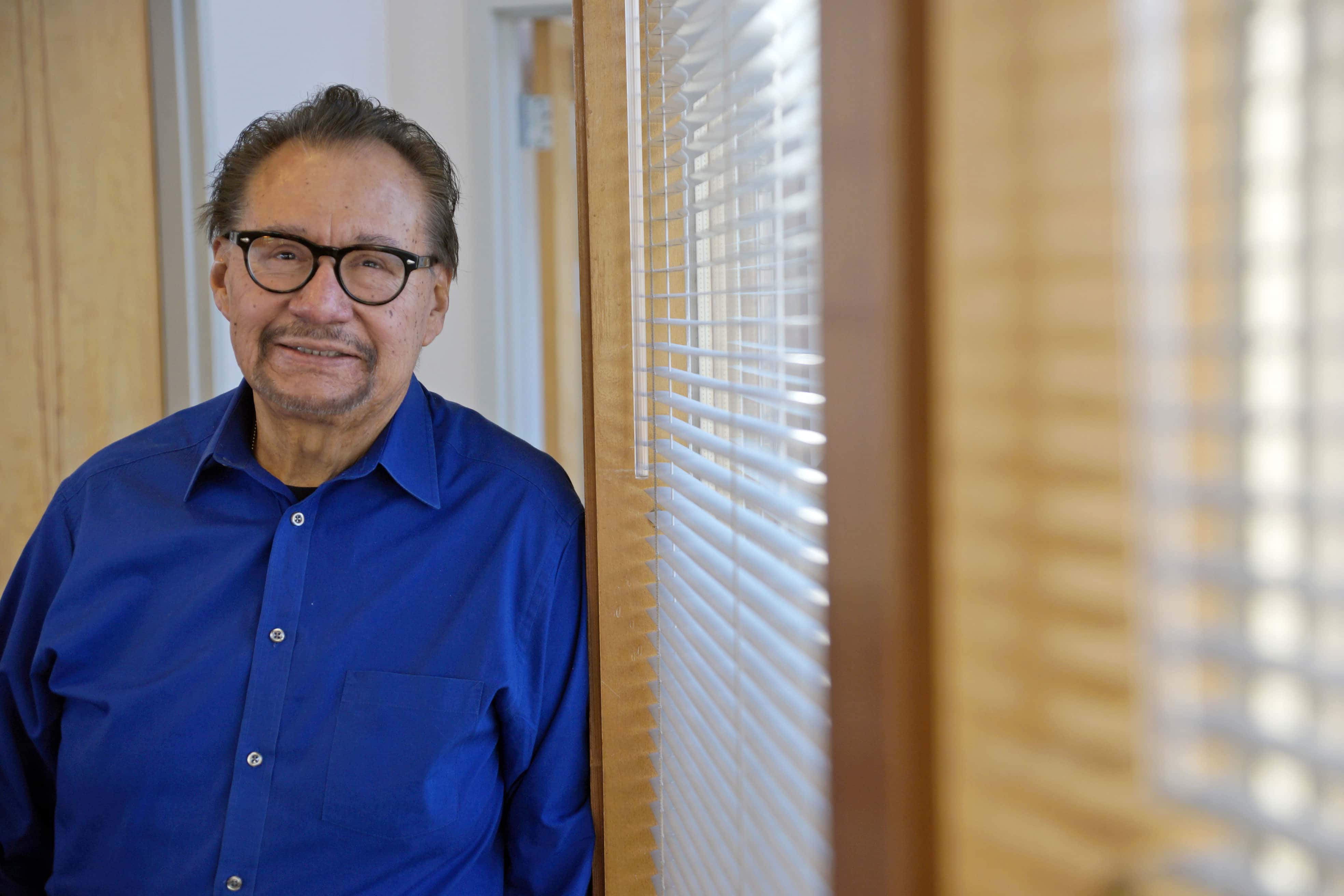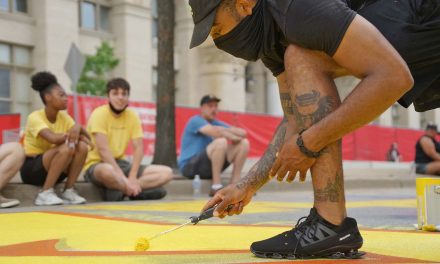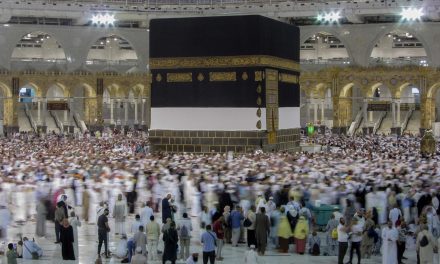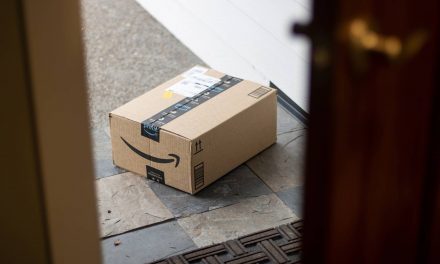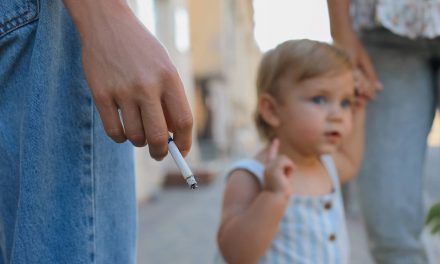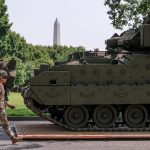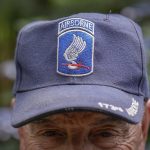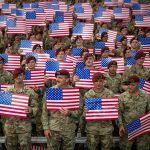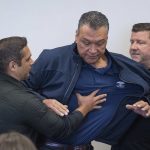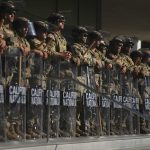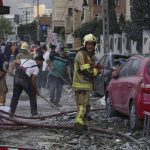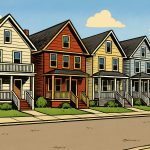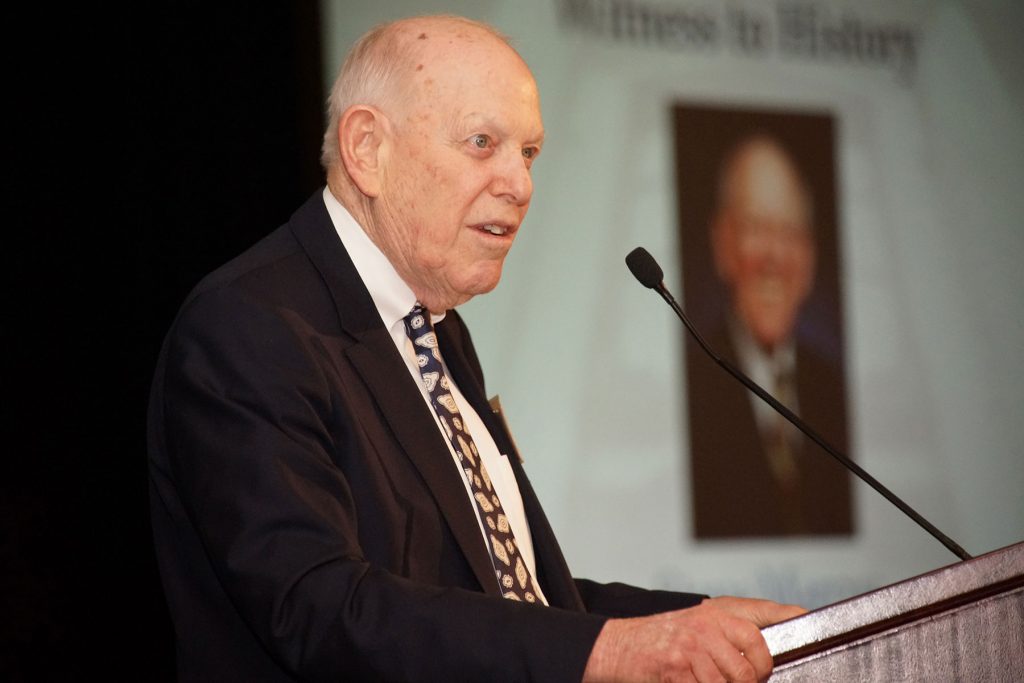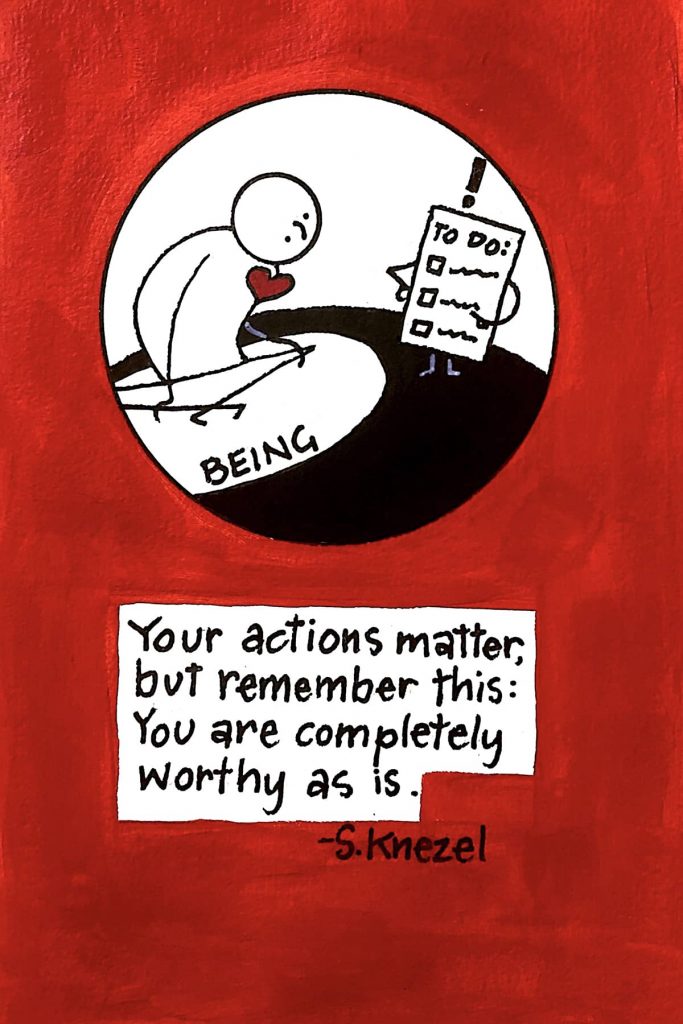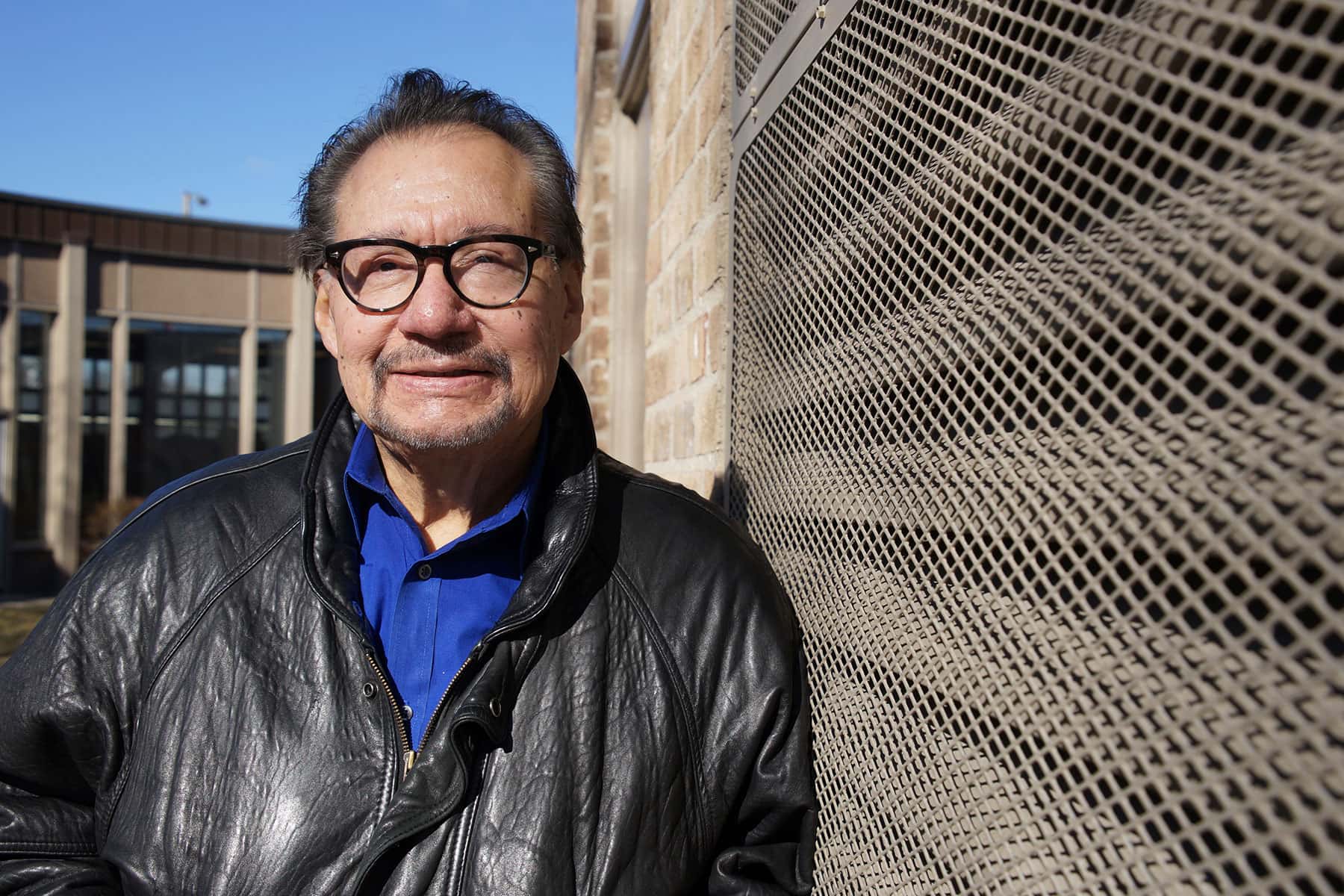
“What does a hero feel like? I was just doing my job, it was what I was trained to do. That’s what I did, and I was lucky enough to survive. So I feel uncomfortable and a little embarrassed to be called a hero.” – George Banda
Celebrated as an American hero for his service in Vietnam, Milwaukee native George Banda has always been uncomfortable with any titles of honor. In a reflection of his humility for being awarded the Silver Star and Bronze Star as an Army Medic, he says he was just doing the job our country trained him for. As the grandson of legal immigrants from Mexico, Banda understands the social perceptions of Latinos in his hometown, and the shared struggle with self-identity and pride at being an American who is ethnically Mexican.
Q&A with George Banda
Milwaukee Independent: What is the fondest memory of your youth, and who was the most influential person in your life?
George Banda: My parents took us kids to see the “The Cisco Kid” movie star Duncan Reynaldo at state fair park in Milwaukee. We got to meet him, and he was very friendly. It really surprised me, and even my parents, when he spoke Spanish to us. He bent down and shook my hand, which was awesome. My grandfather, my father’s father, was bigger than life. He was tall and very strong, and seemed to know how to do everything, fix anything. My father did those things too, but my grandfather told stories of the Mexican Revolution, General Pancho Villa, and coming to the United States as legal immigrants to seek a better life. His young life in Mexico always seemed like an adventure to me.
Milwaukee Independent: If you could send a message back in time to a younger version of yourself, what would you say?
George Banda: I would say, take your education seriously because time is priceless. Do not waste it. As a student I did only as much school work as I needed to pass to the next grade. To me, school was seeing my friends, having a good time goofing around, and making out with the girls. My parents both worked and struggled to make ends meet. They had eight mouths to feed and shelter. Their was little encouragement to go on to higher education. In the sixties in Milwaukee, good paying jobs were plentiful. No need to plan ahead. A factory job was in my future. So as a naïve young man in my teens, I felt I had all the time in the world. So I felt there will be plenty of time to settle down, and I should go out and have fun.
Milwaukee Independent: How is faith a part of your life?
George Banda: Before my tour in Vietnam, faith was very important to me and it guided my behavior. After Vietnam, not so much. I was raised as a Catholic, past down from generation to generation. I attended a Catholic School from grades 3 to 8. I attended Catechism classes, attended church regularly, and was a strict believer following the Bible. God was real, all loving, and forgiving. Catholicism was the true Religion, and I believed I would be rewarded with entry into Heaven for Eternity.
Then combat in Vietnam shocked me into a world were all I had believed in was turned upside down. War, as I witnessed, it was void of morality, compassion, and forgiveness. It was kiII or be kiIIed, torture, vioIent actions without fear of consequences. Young men turned into natural born kiIIers before my eyes. Juxtapose those actions with the Company Chaplin blessing us, saying Mass out in the field, giving us the Holy Eucharist just before we were sent out to kiII as many of the enemy as we could. I was in religious turmoil.
On April 23, 1970 we were on patrol in an area of Vietnam called the A Shau Valley and we were ambushed. We managed to overpower the enemy, but I lost a friend. In the aftermath, we rummaged through a bunker that the enemy had been using as a protective shelter. Some of the guys took their revenge on the dead bodies, for kiIIing one of our own. As I was looking for anything of importance, I spotted something on the dirt floor wrapped in brown paper. I picked it up and unwrapped it. It was an old and torn Bible. Out of the corner of my eye, I spotted a Crucifix made from a palm attached to the inside wall of the bunker. My head started to spin, because I thought we just killed Christians, possibly Catholics. I could not believe it, I didn’t want to believe it. I slowing opened the Bible and a photo fell out. It was of a smiling young Vietnamese couple in front of a church. How could God let this happen? At that precise moment, I no longer believed in God.
Milwaukee Independent: What did you enjoy most about being a firefighter at General Mitchell International Airport?
George Banda: It gave me the feeling that I was doing something worthwhile and good, but working there did not seem like work. I enjoyed going to work and loved the camaraderie. I felt like I was doing something positive. We helped people, we saved lives. We met people from all across the state, country, and world. We were met with smiles and handshakes. I never knew what my day was going to be like, a surprise could be just around the corner. We had past and present U.S. Presidents come through, celebrities big and small. But most rewarding was helping people in need. I cannot express how good that made all of us feel.
Milwaukee Independent: How did you become a combat medic with the 101st Airborne?
George Banda: The Army has a battery of tests to determine what skills we had, but I believe they needed Medics at the time because the Vietnam War was taking a toll. I was assigned to the 101st Airborne, either by fate, a stroke of luck, or because they just needed a replacement. I landed in Cam Ranh Bay, Vietnam in December of 1969 following a flight from Ft. Lewis, Washington. We were herded into an area and went through an in-country acclamation process, it was a lot of paperwork such as life insurance beneficiaries, payroll, and medical forms. Orientation consisted of basic knowledge of the Vietnamese culture and traditions, the tropical weather, specifics of the terrain, and general Do’s and Don’ts in combat. We had a refresher course on all firearms, though none of us were assigned a weapon, because that was done at our final destination. It was a very scary three weeks to be unarmed.
Milwaukee Independent: You were awarded a Silver Star and a Bronze Star about two weeks apart in 1970, what other military commendations did you receive during your service?
George Banda: I received the Purple Heart, Air Medal, Army Commendation Medal, Good Conduct Medal, National Defense Medal, Vietnam Campaign Medal, Vietnam Service Medal, Vietnam Gallantry Cross Medal.
Milwaukee Independent: What is your most vivid memory from 6 May 1970, the day you were at Firebase Henderson when it was attacked and 27 American solders lost their lives?
George Banda: May 6, 1970 was a day that was seared into my soul. We were assigned to provide security for Firebase Henderson, a temporary artillery base just a few kilometers from the DMZ border separating North Vietnam and South Vietnam. On that morning we were attacked by a battalion of North Vietnam soldiers and our position was overrun. As a medic assigned to Echo Company’s Recon platoon, I treated many of my fallen comrades for critical wounds. But I felt so helpless because I was physically unable to reach my buddies who lay wounded and dyіng. It was crushing. The screams a person makes when he knows he is about to dіе and there is nothing he can do about, it is something I never forget. Some buddies I held on to as they dіеd, listening to their dyіng wishes. I just lied to them, as they asked if they were going to dіе. ‘No,’ I would reply. ‘You’re going to be fine.’ So I guess I was lying to both of us.
Milwaukee Independent: What is your reaction or response when people call you a hero?
George Banda: When people call me a hero, I’m embarrassed and feel like a fraud. I’m no hero. I was doing what I was trained to do, my job. We all did our job. It’s what we did. When I look at those medals, they don’t remind me of how brave I was, only the friends I lost and the immeasurable pain inflicted on their families.
Milwaukee Independent: Hispanics have served in every American war since the Revolution, so why have these contributions been overlooked by history?
George Banda: Until recently we had just been bunched in with the general American population. Latinos never tried to draw attention to themselves, they just wanted to be accepted. But that that never came. Even after fighting in conflict after conflict we were just pushed to the side, and we let it happen. We felt fortunate to be in this country, so we did not want to make any waves or draw attention to ourselves. When people do not speak up for themselves, they get overlooked and eventually are not considered important.
Milwaukee Independent: What would you like people to know about Latino veterans and their history of military valor for our country?
George Banda: We have repeatedly show, by our full participation in every war that America has been involved in, that we are true and loyal Americans. Despite inequality, injustice, and prejudice, we have stepped up to the plate without hesitation for our country, to protect it.
Milwaukee Independent: What was it like to fight for democracy in Vietnam, but then see so many in your community back home be denied basic civil rights?
George Banda: As a Vietnam Veteran, I came back to a hostile country that was in disarray. Vietnam Veterans were made to feel guilty and ashamed for serving. As a Latino, and never feeling like I was as an equal already, it was just one more thing to deal with.
Milwaukee Independent: Many soldiers had a hard time coming home after the war, what was the Latino experience like? At least in your case in Milwaukee?
George Banda: It was tough, but I had family and close friends. Friends from the hood that also served in Vietnam. We were our own support group. It was difficult adjusting to civilian life, especially because in less than forty-eight hours I went from a war on the other side of the world to being safely back in Milwaukee. As a Latino, family played an important part in my life and in my healing. They never judged me or asked me any questions about Vietnam. They gave me my space. My mother’s home cooked meals at the kitchen table, with her singing of Mexican songs, were healing. I was finally home, and safe. I kept Vietnam and its memories locked away, all except the nightmares. I felt it better for my sanity not to speak of Vietnam. So I did not tell anyone outside my family, or very close friends who were also Vietnam Veterans, about my Vietnam experience. It would be thirty-eight years before I finally unlocked that box and broke my silence.
Milwaukee Independent: Did you witness the effect of the Vietnam War on the Latino community in Milwaukee?
George Banda: We lost a number of friends in Vietnam, and we could see their families trying to make sense of it. Their Faith in God got them through the ordeal. The Latino Community was a very close community. Everyone knew each other. It seemed like every week someone in the neighborhood received notice that their son had been killed in action. It was emotionally draining for the community. We could hear the whispers, that these boys were so young and would have had so much life ahead of them. How can this be? What were we fighting for? Support was often filled with shared doubt. ‘He died for his country,’ people would say, ‘you should be proud.’ But it did not lessen the heartache or bring better understanding about the war.
Milwaukee Independent: What was the most insensitive question you have been asked about your Vietnam experience? And do you try to explain to civilians what military combat was like?
George Banda: The proverbial military question, “Did you kiII anyone?” was asked a lot. How was I supposed to respond to that? I answered truthfully. I did’t know, I was a medic, I saved lives. In a firefight, I fired my weapon into the jungle foliage but never knew if I hit anyone. Most of the time I was treating the wounded, that was my job. I do not try to explain military combat to civilians. I really can’t explain combat. I can describe it. I can be very graphic and detailed, but I don’t think I can explain it. Combat is something that has to be experienced to comprehend.
Milwaukee Independent: What is the most common question you are asked about your Vietnam experience? And what does no one ever ask that you have always wanted to talk about?
George Banda: The questions are ‘What was combat like, what kind of weapon did I carry’ are most common. I would rather people asked me about the Vietnamese and their country, that is something I would love to talk about. The Vietnamese people were very friendly and polite. Not fake friendly or afraid polite, but genuine friendliness. They were very hard working and family orientated. Their country was breathtaking and pure. In spite of all the wars in their country, they were filled with joy, although it was a cautious one.
Milwaukee Independent: Have you ever faced personal discrimination in Milwaukee for being Latino, and if so what form did it take?
George Banda: I attended school in Northern Wisconsin, first and second grades. I got my first taste of discrimination there. My extended family came from Southern Texas as migrant workers, and they had stopped up North for work. I was sent to a school in a nearby town. I was the only Latino in the class. I spoke and understood some English. I learned quickly that my classmates and my teacher would not tolerate such a student. Anytime I spoke Spanish, even just a word, the teacher would slap me across my mouth to the amusement of some of my classmates. She said that I was in America now and I should speak only English, or I would be punished. I never forgot those acts of intolerance. As for Milwaukee, it was a different story because Latinos are all around me. They spoke Spanish and English. We were all the same. The neighborhood was mixed. There were rivalries, but nothing like in Northern Wisconsin. Here in Milwaukee we blended in.
Milwaukee Independent: What is your biggest hope and greatest fear for the future of the Hispanic community in Milwaukee?
George Banda: My biggest hope for the Hispanic community in Milwaukee is that it continues to make steady progress, always moving forward and opening our own doors to success. To accomplish that, education remains our path to prosperity and freedom. I want to see continued participation in the political process at the local, state, and national levels so we can make our voices heard. I would also like to see more recognition for our contributions to this country, our country. We should be free to stand with pride for who we are, as Americans. My greatest fear is to be satisfied with the status quo. To sit back at let opportunities slip by. To fade into the background, go unnoticed, be forgotten, and considered unimportant.

